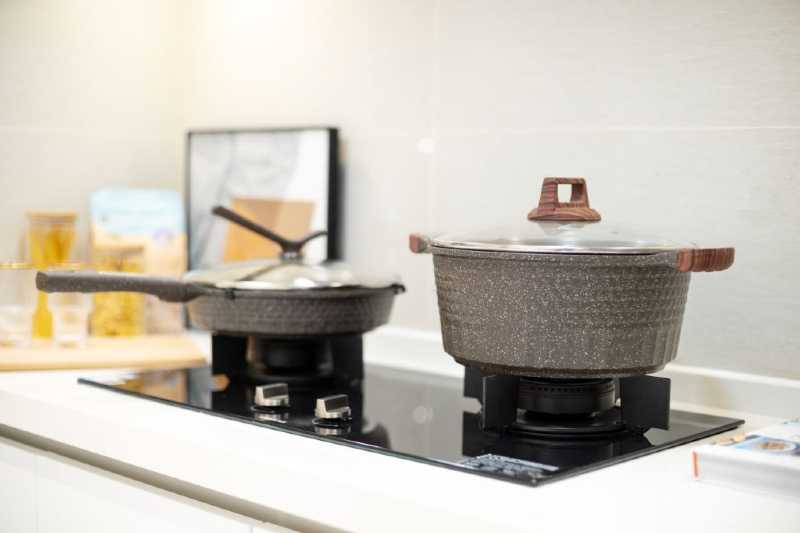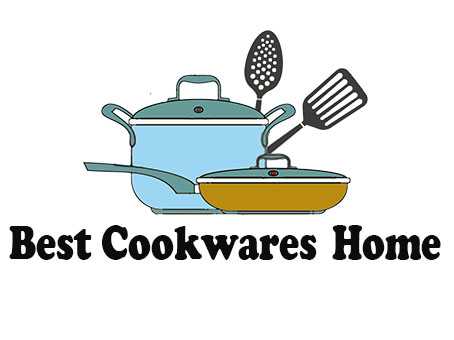
Can you use ceramic cookware on a glass top stove? The answer is yes, Ceramic pots and pans are made of high quality clay that won’t scratch your surfaces. They don’t conduct heat as well as cast iron or stainless steel so they’re best for low-heat cooking like simmering, frying, boiling or baking.
There are the number of Benefits of Ceramic Cookware , they are healthy and free from all toxins and chemical substances. If you want to use them at higher temperatures it’s recommended to preheat the pan before adding oil then turn down the heat immediately to avoid burning food.
You’ll also need more oil because there’s no metal in the pot that will retain it. It’s also important when using this type of cookware not to let the water come.
Summary
Can You Use Ceramic Cookware on a Glass Top Stove
Ceramic cookware is a popular choice for many people when it comes to kitchenware. It can be used on any type of stove, but with glass top stoves there are some precautions that you need to take before using ceramic cookware. In this blog post, I will provide information about whether you can use your ceramic cookware on a glass-top stove or not.
Ceramic cookware is often used on glass top stoves. This information could be helpful for those who are looking to purchase new cookware and have a glass-top stove. The question arises whether ceramic can be used on a glass top stove or not, but the answer is yes
Many cookware companies have started to create ceramic-coated stainless steel cookware so that customers can use it on their glass-top stoves.
How does the magnetic induction cooking system work?
Induction cooking is being used now in restaurants and hotels worldwide. It has made electric frying pans obsolete too. So, how does induction cooking work?
Induction cooking uses electricity to create magnetic fields that create heat, inducing the food or cooking vessel in the process.
The induction cooktop creates a magnetic field with an electromagnet built into the surface of the heating element. Magnesium strips inside the cookware provide a path to magnetize and demagnetize. This causes electrons in the strips to jump back and forth, creating heat in the process.
Related: Best Non Stick Pans for Induction Cooker
How to Take Care of Ceramic Cookware
Ceramic pots are a popular choice among professional chefs and restaurants because they heat food evenly, retain heat well, prevent dings and scratches, and are much more durable than nonstick or stainless steel cookware.
To prolong the life of your ceramic cookware, clean it properly after each use and store it separately on the shelf unless you place a pan protector between each piece. Here are some Instructions to follow
Avoid Overheating
To avoid cracking your ceramic cookware, do not allow the ceramic pot to overheat. Ceramic pots are heat resistant up to about 500 degrees F. If you happen to forget about your pot and it begins to overheat, quickly remove it from your range and place it on a cool burner or surface. This should keep your pot from cracking, although some damage may occur.
Avoid the sudden change in Ceramic Pan
Ceramic pots are great for storing food in both refrigerators and freezers but certain precautions must be taken. Ceramic can crack if it comes into contact with extremely hot or cold surfaces, however, do not place a hot pot directly in the refrigerator or on a cold surface.
Use Proper Utensils
One of the biggest challenges for a cookware set is the proper utensils to use when cooking with nonstick or ceramic ware, especially when cooking on an electric or induction stove.
You can use a brush with nylon bristles to clean a pure ceramic pot, but you’ll want to avoid brushes with metal bristles as they could damage the surface of the pot. If you have a smooth-surface cookware pot, you could also use a scouring pad, but again this is something that should be done only occasionally and with care.
Clean the Ceramic cookware Properly
Ceramic pots and pans are great because they are non-stick, extremely durable and can even be used in the oven. But if you do not take care of your ceramic cookware then it will end up looking old and worn out. This will result in you having to replace these pots that have lasted for a while.
What is the difference between Glass top stove and ceramic top stove?
Each type of stove has its unique advantages and disadvantages.
Glasstop stoves:
A glass-top range has an open coil heating element that sits above a layer of tempered glass. This design makes it easier for cooks to monitor food as it’s cooking. The biggest advantage of a glass-top stove is its ability to quickly heat the entire cooktop surface at once so that multiple pots or pans can be used simultaneously on every burner.
Ceramic top stoves:
Ceramic stoves are also attractive and durable they’re easy to clean, take up less space in the kitchen than glass-top stoves and can withstand dings from accidental bumps with pots. You can also usually place cooking pots and pans directly on ceramic tops without worrying about scratching them and transferring harmful chemicals into your food.
Some ceramic top stoves provide a digital display for temperature control and electronic timing capabilities so that you don’t have to tend as closely to your cooking. These displays may also come with other convenient features, such as cook timers and thermometers.
Why it is difficult to find Ceramic Cookware for Induction Cooktop?
The answer is that the induction surface requires ceramic cookware with a magnetic base. The induction cooking is based on the fact that the pan contains metal particles when the induction cooking process starts. Ceramics can be used with induction if we use the right kind of material for the cookware. A good and easy way to test whether your cookware is compatible with your range is to do a magnet test on the bottom of your pan.
For induction cooktops to work, they have to generate small magnetic currents in the pan. These magnetic currents create friction, which creates heat. Therefore any lack of conductivity in the pan material will hinder the ability of thermal induction in cooking pots.
Although quality ceramic coating has been developed recently, it is not compatible with induction stoves. So other types of materials are often used to manufacture ceramic cookware for induction cooktops.
Nowadays Ceramic pans that have a stainless steel disc work great as Stainless Steel Induction Compatible cookware. These two materials together make one pan that combines the high performance of a ceramic cooktop with induction cooking capabilities.
Are Ceramic Pots Dishwasher Safe?
If you don’t want to hand-wash your pot or pan then it is recommended that you do not put your ceramic cookware in the dishwasher. This will ensure its longevity and quality. On the other hand, if you did choose to wash your ceramic pots or pans by hand, use warm water instead of hot water so as not to damage the glaze. Always dry the ceramic cookware after washing it by hand to avoid water spots.
How Long Does Ceramic cookware last?
Just like any other kitchen utensil, ceramic pots and pans have a life expectancy. The material itself is extremely strong and durable; this is why they are used in most laboratory settings where temperatures can reach up to 1000 degrees Fahrenheit. However, ceramic gets damaged by rapid changes in temperature and impacts that can chip the surface. The most common way for ceramic to break is the same as it is with glass dropping or banging on a hard surface will inevitably break it.
Read in details:
How Long Do Ceramic Pans Last?
How Long Does Ceramic Cookware Last?
Final Words
The ability to use various kitchen appliances with your ceramic pot is another feature that makes this cookware material a popular choice among cooks.
Pure ceramic cookware is versatile and durable. That’s why it comes as no surprise that these pots are suitable for both glass top stovetops and gas stovetops.
Read More:
Is Ceramic Coated Aluminum Cookware Safe
Can You Use Aluminium Pans On Induction Cooktop?

Hi, Welcome to our Blog. We are a team of Professional Blogger and expert in Cookware, Kitchen Appliances. We Work for the latest Reviews for Cookware, Kitchen Appliances. You can give us your kind Suggestions for improvements of Blogs, Thank You
